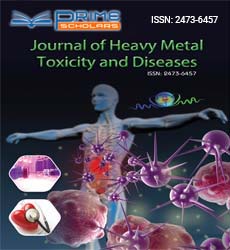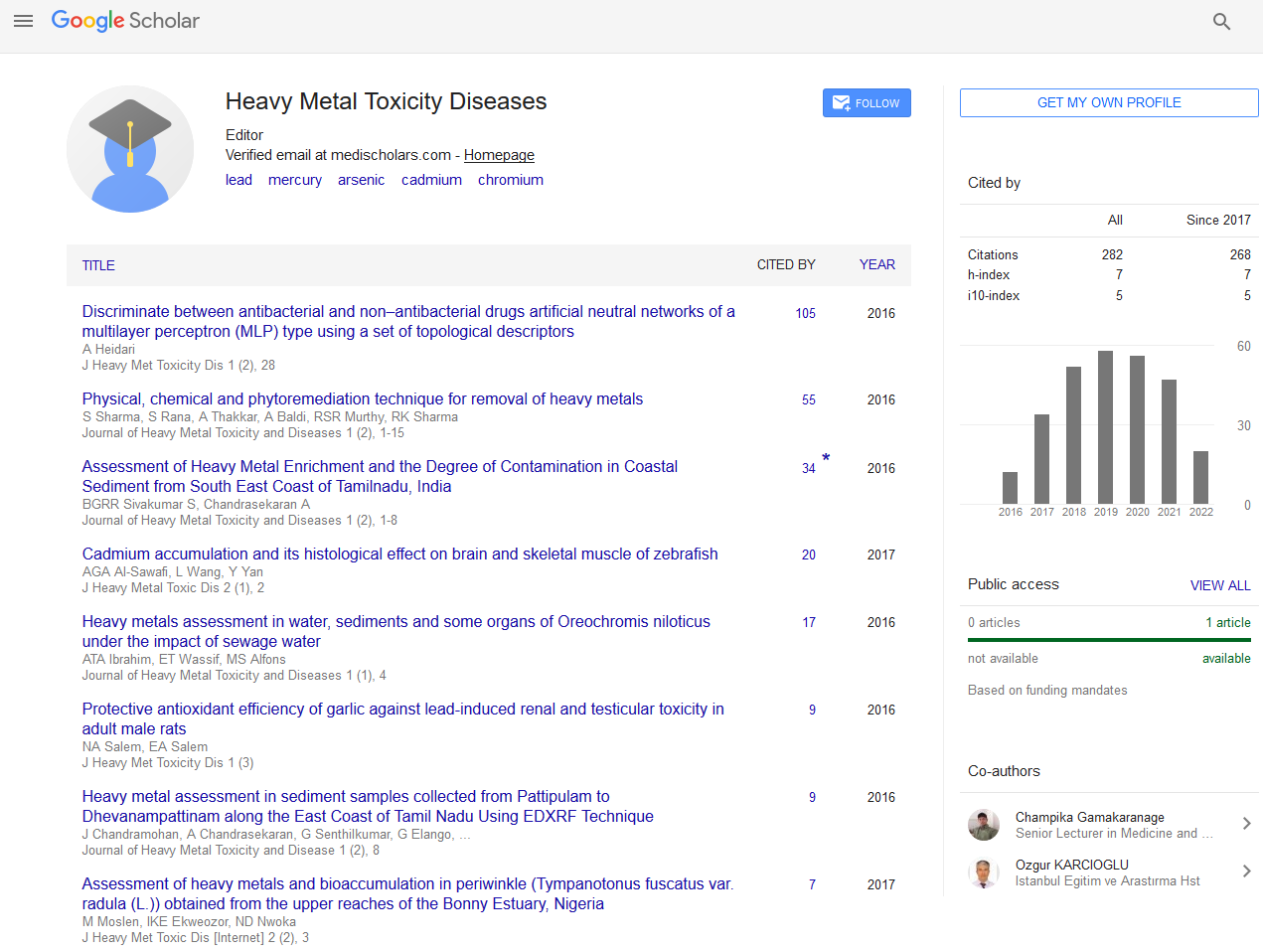Perspective - (2024) Volume 9, Issue 3
Origins of Health and Disease Research: Unraveling Early-Life Exposures and Their Impact on Disease Susceptibility and Developmental Disorders
Nicro Giovanni*
Department of Paediatrics, Padua University, Italy
*Correspondence:
Nicro Giovanni,
Department of Paediatrics, Padua University,
Italy,
Email:
Received: 29-May-2024, Manuscript No. ipjhmct-24-20636;
Editor assigned: 31-May-2024, Pre QC No. ipjhmct-24-20636 (PQ);
Reviewed: 14-Jun-2024, QC No. ipjhmct-24-20636;
Revised: 19-Jun-2024, Manuscript No. ipjhmct-24-20636 (R);
Published:
26-Jun-2024, DOI: 10.21767/2473-6457.24.3.26
Introduction
In recent decades, research in the field of Origins of Health and
Disease has garnered significant attention for its exploration
into how early-life exposures shape long-term health outcomes.
This interdisciplinary field investigates how environmental
factors, including nutrition, pollutants, stressors, and social
conditions during critical developmental periods, influence
disease susceptibility and developmental disorders later in
life. This article delves into the complexities of OHaD research,
highlighting key findings, methodologies, and implications for
public health and policy.
Description
Early-life exposures encompass the period from conception
through infancy, a critical window during which environmental
influences can have profound and lasting effects on biological
development. Exposures during this sensitive period can
alter gene expression patterns, cellular processes, and organ
development, establishing a foundation for health and disease
throughout the lifespan. OHaD research has illuminated the
link between early-life exposures and increased susceptibility
to chronic diseases in adulthood. For example, studies have
demonstrated that maternal nutrition during pregnancy
influences fetal development and may predispose offspring to
conditions such as obesity, diabetes, and cardiovascular disease
later in life. Similarly, exposure to environmental pollutants,
including heavy metals, pesticides, and endocrine-disrupting
chemicals, during critical developmental stages can disrupt
normal physiological processes and contribute to disease
susceptibility. Beyond chronic diseases, early-life exposures
also play a pivotal role in the onset of developmental disorders,
including neurodevelopmental and behavioral conditions. Factors
such as prenatal stress, maternal substance use, and exposure
to toxins have been implicated in the etiology of disorders such
as autism spectrum disorders, attention deficit hyperactivity
disorder and intellectual disabilities. OHaD research strives
to elucidate the mechanisms through which these exposures
alter brain development and function, providing insights into
potential preventive and therapeutic strategies. Longitudinal
cohort studies track individuals from early life into adulthood,
examining associations between prenatal and early childhood
exposures and later health outcomes. These studies provide
valuable data on population-level trends and risk factors. Animal
studies allow researchers to manipulate early-life exposures
under controlled conditions, providing mechanistic insights into
biological pathways and testing interventions that may mitigate
adverse effects. Advances in epigenetic research have revealed
how early-life exposures can modify gene expression patterns
without altering DNA sequences. Epigenetic mechanisms, such
as DNA methylation and histone modifications, mediate the longterm
effects of environmental exposures on health and disease
susceptibility. Biomarkers of early-life exposures and subsequent
health outcomes serve as indicators of biological changes and
disease risk.
Conclusion
Origins of Health and Disease (OHaD) research represents
a transformative approach to understanding how early-life
exposures contribute to disease susceptibility and developmental
disorders. By elucidating the complex interactions between
environmental factors and biological systems during critical
windows of development, OHaD research informs strategies
to promote health equity, prevent disease, and optimize
lifelong well-being for individuals and populations globally.
Continued interdisciplinary collaboration, investment in research
infrastructure, and commitment to evidence-based policies
are essential to advance OHaD research and improve health
outcomes across generations.
Citation: Giovanni N (2024) Origins of Health and Disease Research: Unraveling Early-life Exposures and their Impact on Disease Susceptibility and Developmental Disorders. J Heavy Met Toxicity Dis. 09:26.
Copyright: © 2024 Giovanni N. This is an open-access article distributed under the terms of the Creative Commons Attribution License, which permits unrestricted use, distribution, and reproduction in any medium, provided the original author and source are credited.

